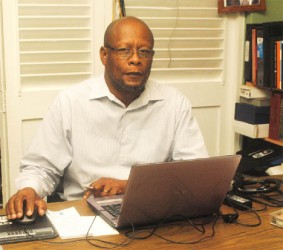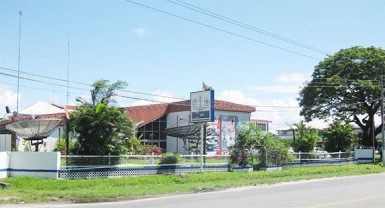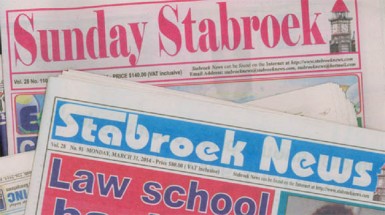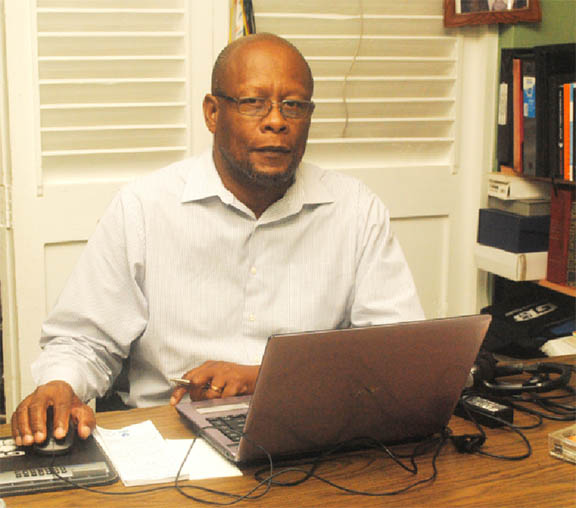Capitol News Director Enrico Woolford shares his views on media issues with the Guyana Review
GR: When you think of media freedom what do you consider to be its key elements?
E.W: Editorial freedom in reporting what is true, correct and right. Economic, political or other conditions must not impinge on how a news report is crafted and carried.
G.R. Where is Guyana positioned as far as media freedom is concerned?
E.W. We have some measure of media freedom in some sections of the media. The state media cannot operate without political interference in the current dispensation and in some cases the independent media are constrained by economic/financial considerations in the coverage of certain events. There is also the constant threat of libel and whether the cases reach resolution in the courts just the initial court action by way of injunction can muzzle the media. I think that criminal defamation is still on the books in Guyana. Guyana is not in as good a position as we may think.
G.R. You worked in the state media during the era of the PNC administration. Could you tell us a bit about the journey from there to where we are as far as media development and media freedom are concerned?

What was interesting for me is how much alike political administrations are when it comes to the media. They all see the media as Public Relations outlets rather that News Reporting entities. The idea is for the state media to sell government’s (invariably the ruling party’s] positions, plans and programs.
As a result, state media personnel often engage in self-censorship feeling that they cannot report matters that they feel may be inimical to the ruling party’s image. Fortunately in my case I think that my university education in Journalism and International Relations insulated me from some of the attempts to carry a particular line.
We at the Visual Production Centre started in the late 1980s both the GTV News and Homestretch Magazine and both of these programs are still on the air today. Unfortunately the News has descended into what appears to be a government information bulletin.
What we have to today is a wider media landscape that started under the Hoyte Administration with the Stabroek News and Television news and other local programming coming on stream. The wider media landscape in 2014 is divided into state and government aligned media on the one hand and independent media on the other.

It is unfortunate that the radio spectrum was allocated in the arbitrary way it was by former President Bharrat Jagdeo and the way financial power was used to acquire media outlets. Guyana still needs a level playing field particularly in the electronic media.
It was proposed several years ago that there be a three tier approach to TV broadcasting, national, regional and community TV stations across the country, in terms of radio, national and community stations. Obviously these stations cannot attract the same license/broadcasting fees. Thus there is something quite unfair and unjust about spectrum management and licensing in the country.
The Broadcast Spectrum allocation issue is currently in the courts.
G.R: How would you define the disposition of governments to the free flow of information?
EW: To paraphrase the Scriptures, the Government has a form of “free flow” but denies the power thereof. The way the Freedom of Information regime was set up 
G.R: How significant is the recent decision by the political administration to grant operating licenses for radio stations to private investors?
E.W: The decision was steeped In unfair, unjust practices and lacked transparency. It should have been a good thing but the underhand and secretive manner in which it was done and to whom multiple frequencies were allocated have grossly undermined any good intention to “break the government monopoly”. It is not a break of a monopoly when the government calls in its friends and fellow travelers and allocates multiple frequencies to some under the guise of opening up the radio spectrum.
In addition, because of the way the licenses were issued, no proper training programs were in place to have persons accommodated in the new entities.
We now have more entertainment available via radio however.
GR: What are your views on professional levels in the media in Guyana?
E.W: Guyana still has some way to travel on the road. Except for a few print and electronic media houses for the most part there is room for improvement.





